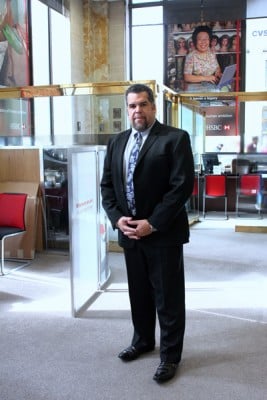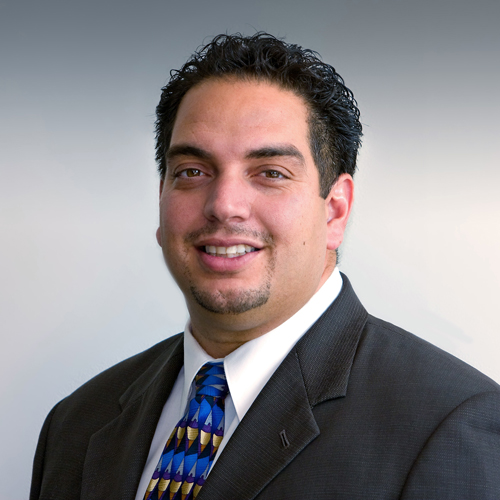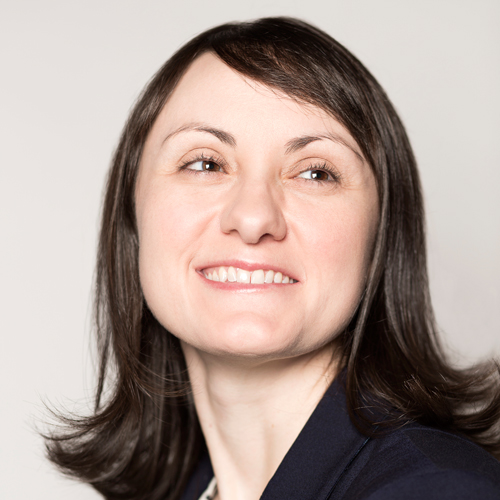
When Pablo Sanchez was growing up in Southbridge, Massachusetts, in the 1960s, his was one of only a few Hispanic families in town and among the first to establish a home in the region.
At the time, it would have been hard to guess that he would become one of only a handful of Hispanic, C-suite leaders in the financial industry. Sanchez’s father originally came to the US from his native Puerto Rico to pick fruit and send his earnings back home. He began with oranges in Florida and worked his way north for the apple harvest. Once in Massachusetts, he found a more stable job sweeping floors at a textile factory. In what could be seen as a foreshadowing of the boldly upward trajectory his son’s career would take, the elder Sanchez, who had never advanced beyond the third grade, worked his way up the ranks in the company, eventually becoming general manager of production at the factory.
In addition to giving his son a prime example of what hard work could accomplish, Sanchez’s father had established the stability necessary to provide his children with opportunities to be whatever they wanted to be. Sanchez always had an ambition to rise to a position of leadership, even when facing discrimination as a minority in Southbridge.
“I wanted to create my own destiny and not let the stereotypes define who I was going to be,” he says. “I never wanted anyone to be able to say ‘you got this job because we’re filling a quota.’” Growing up in a three-story tenement house in a small New England town as a Puerto Rican, Sanchez’s educators didn’t necessarily steer him toward finance, but he had a knack for doing well in school. “I just worked hard at trying to be the best at what I was doing at any given time.”
The first member of his family to attend college—the cost of which he supplemented by commuting and working 40 hours a week—Sanchez entered the workforce with fierce determination. After working in lending, mortgage, and retail banking with CitiMortgage, a subsidiary of Citigroup, he was hired by JPMorgan Chase as the national director of consumer banking. He stayed with Chase for nearly a decade before being hired by HSBC as CEO of retail banking and wealth management in the USA and Canada, in June of 2015.
“I came here to write the next chapters of this business for HSBC in the US. We’re making progress.”
Pablo Sanchez
Sanchez says one of the main challenges in his transition to HSBC was adjusting to a position of leadership at a company he didn’t have a history with.
“I came from a place I had been for 10 years at a senior level,” he explains. “It was a place where I had influence and knew the people I worked with and for. There’s a lot of equity in a position like that. Moving on to the next place, part of the issue was that I didn’t have a base. I was hired on the promise that I was going to perform at a senior level. At the end of the day, I would have to earn the stripes, regardless of the title. It’s easier being the boss, but you still have to earn people’s respect.”
There also was a learning curve in the new position. For one, his background was primarily with domestic businesses. At HSBC, he was entering a company with a vast global presence, of which the domestic operations he was overseeing were only a part. At Chase, he was tasked with managing a workforce of 60,000; at HSBC it’s around 3,000 but the actual scope of the job is bigger. Now, he is responsible for retail, wealth, mortgage, credit card, and small business in North America, all at the same time.
“The retail franchise touches so many different countries at HSBC,” he says. “The challenge is to create consistency, scalability, and leveragability across a global network. It takes a lot of work and a lot of discipline. I don’t do things for short-term wins. It’s easy for someone to come in, put the pressure on, and increase sales, but that doesn’t stand the test of time. For me, it’s about being a customer-centric organization that is compliant and doing business the right way. We want to always take the high road. Hopefully, then, we will have the right outcomes for the employees, the business, and our customers.”
Indeed, banking has had its difficulties recently, but when Sanchez surveys the landscape, he sees many reasons for optimism. While he acknowledges the negative impact of regulatory issues on the industry, he says that regulation has led, at the same time, to a closer interaction with clients and better advice. He also says that a tight, competitive field with other storied firms such as Merrill Lynch, Edward Jones, and Morgan Stanley has raised the standards even more, and that’s something that ends up benefiting everyone involved.
“We’ll eventually get to the right place as the trusted advisers to an entire world of financial investors,” he says.
From the industry’s perspective, Sanchez has done a lot right in less than a year on the job. In February, GOBankingRates.com, one of the leading bank-rating websites in North America, named HSBC its “Best Bank of 2016.” Sanchez sees the recognition as a welcome sign of the progress he’s working for.
“I came here to write the next chapters of this business for HSBC in the US,” he says. “We’re making progress. The award speaks to fact that we can be a winning franchise here in the US, from a retail perspective. Winning begets winning. It’s a key step as we transform this franchise to try and optimize its performance here in the country. It’s a baby step, but one that proves we have been successful and that others are paying attention.”

